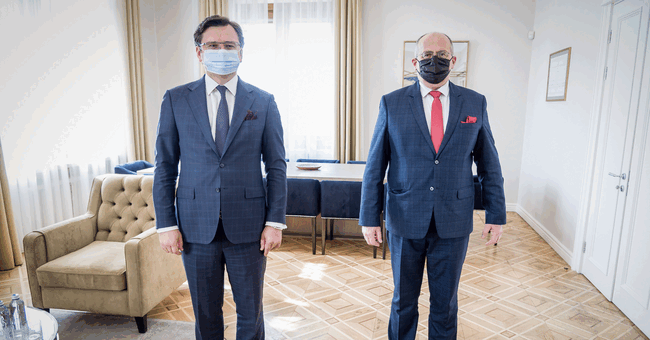The controversial gas pipeline dominated the White House meeting last week between German Chancellor Angela Merkel and US President Joe Biden.
After the meeting, information was leaked that they no longer oppose the completion of the gas pipeline.
The United States has previously threatened sanctions and enacted laws against the work of the administration.
And less than a week after the meeting, the countries officially announced that they had reached an agreement.
It means that the company can resume work after it was stopped in the deeper parts of the Baltic Sea just over 1.5 years ago.
"The crisis is deepening"
However, the German-American green light was not positively received by the governments of Poland and Ukraine.
"At present, the crisis is significantly deepened by the decision to abandon attempts to stop the NS2 gas pipeline.
The decision poses political, military and energy-related threats to Ukraine and Central Europe, while strengthening Russia's potential to destabilize the security situation in Europe, thus perpetuating divisions between NATO and EU member states, "said Polish Foreign Minister Zbigniew Rau and Ukrainian Foreign Minister Dmytro Kuleba in a joint statement. statement.
The Nord Stream 2 gas pipeline will be 2,460 kilometers long.
It is closed in the Swedish economic zone in the Baltic Sea and will supply natural gas from Russia Photo: SVT Design
Russian state
Behind the project is the Russian state-controlled energy company Gazprom.
Energy companies in Austria, Germany, France and the Netherlands have also made major investments.
The company is based in Switzerland.
Although both the United States and Germany now say they are giving their "steadfast support" for Ukraine in the joint statement on Wednesday, Poland and Ukraine continue to oppose Nord Stream 2 (NS2).
Poland and Ukraine will work together with their allies and partners to oppose NS2 until solutions are developed to address the security crisis triggered by NS2, provide support to countries seeking membership in Western democratic institutions and reduce threats to peace. and energy security, ”the countries' foreign ministers said in the statement.
A tugboat at the Russian pipe-laying vessel Fortuna in the German port of Wismar in the Baltic Sea.
Photo: AP January 14, 2021
Ready in August
According to the company, 98 percent of the management is finished, but the delay has cost "hundreds of millions" of euros, CEO Matthias Warnig said in a recent interview.
He said that the goal is for the pipeline to be completed by the end of August.

